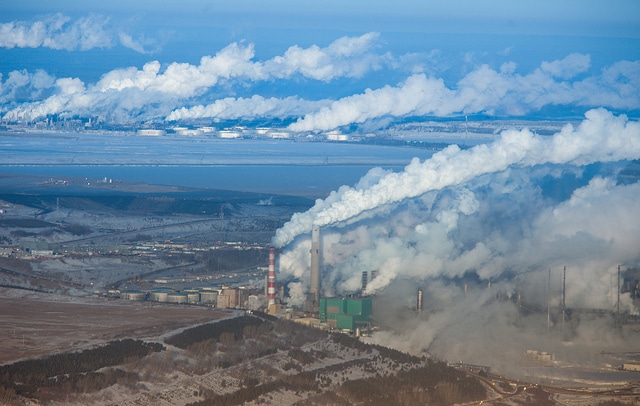Companies like Shell Oil really need to give their eyes a rub and see that a world with serious constraints on greenhouse gas emissions is not a possible future, but an eventual reality.
Right now, oil companies are investing billions in long term plays in very carbon intensive fuels, like Canada’s oil sands, while at the same time there are more and more signs that strict regulations on such operations are on the near horizon.
You don’t need to look much further than the years of delays on the Keystone XL pipeline to see that governments are starting to second guess these big cash layouts on climate-risky projects.
Or take for instance, the federal court ruling last week that halted a proposed coal mining operation in Colorado stating that the “social costs” of contributions the mine would make to worsening impacts of climate change in the future were not taken into consideration.
This ruling on the grounds of future social costs should be a ‘canary in the coal mine’ wake-up call for companies still considering investing big dollars in long-term carbon-intensive projects.
When you consider the scale of something like Shell’s planned $5.4 billion investment in the expansion of their Jackpine oil sands operations, you start to see just how much money is being laid out on these risky plays.
An ongoing effort to chronicle this idea of companies risking billions on assets that may be rendered worthless in a carbon-constrained world, is being run by a UK group called the Climate Tracker Initiative (CTI).
In my humble opinion the work being done by CTI should be on the desk of every financial analyst and on the tip of the tongue of every financial journalist in the world.
New CTI‘s research out this week shows that Shell Oil is putting at risk upwards of $77 billion [PDF] by not taking the risk to their carbon-intensive investments in to proper account and claiming that the oil giant:
Dismisses the likelihood of political action on climate change, ignoring the growing list of national and regional emissions rules and the growing calls and potential for greater energy efficiency worldwide.
According to CTI, Shell’s response to their work apparently didn’t even get the science right:
Shell’s response also misrepresents the IPCC by stating on the first page of its public response that ‘there is a high degree of confidence that global warming will exceed 2 degrees Celsius by the end of the 21st century’. In fact, this is only one stated outcome if there is no action to reduce global emissions.
For a company whose future prosperity is so tied to climate regulations, one would think they would have the science down pat.
In the very near future (if not already) I am guessing shareholders in these oil companies are going to start asking pretty tough questions, and companies like Shell better have solid answers about the reality of the carbon bubble ahead.
Image credit: Kris Krug for DeSmogBlog
Subscribe to our newsletter
Stay up to date with DeSmog news and alerts






